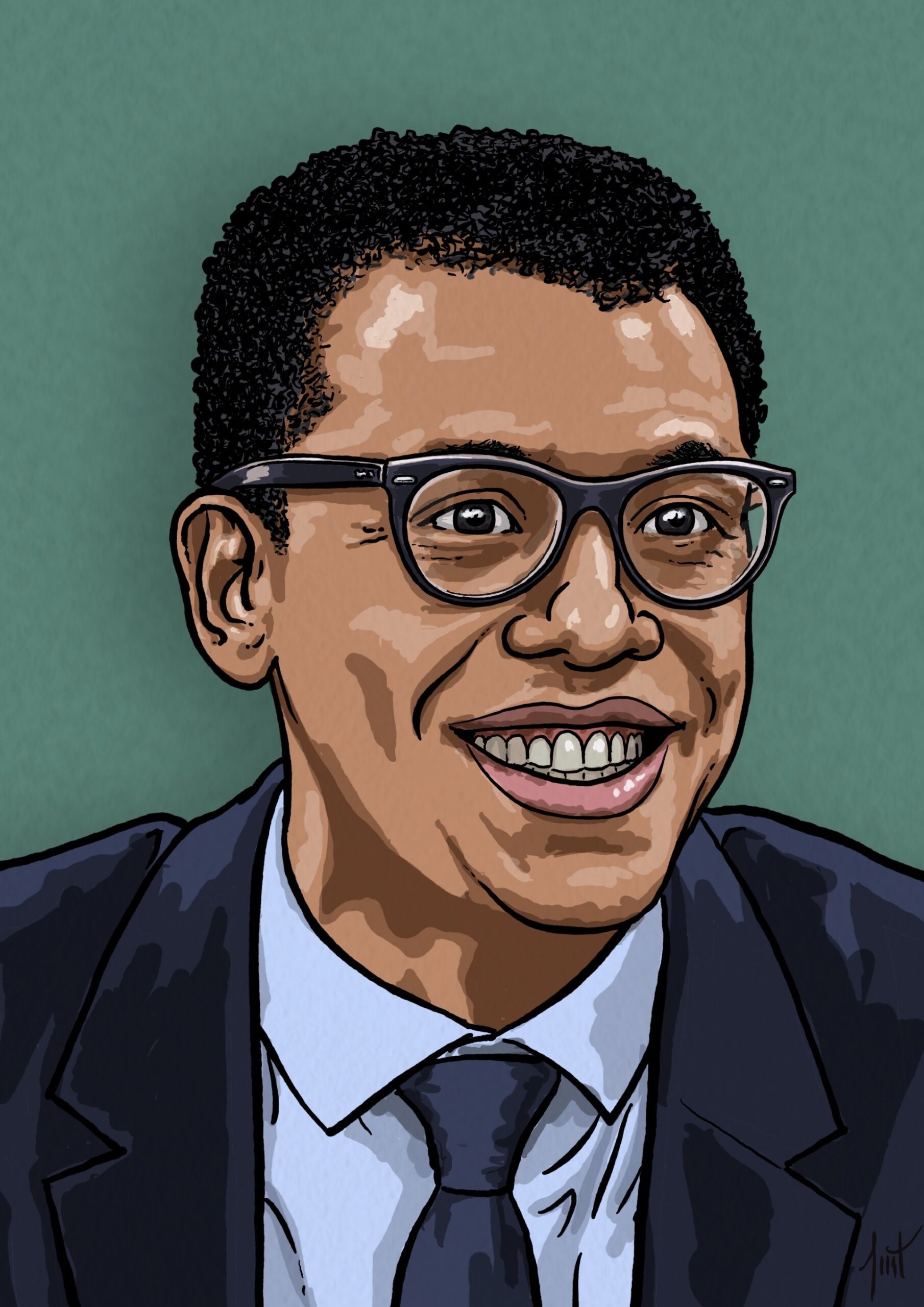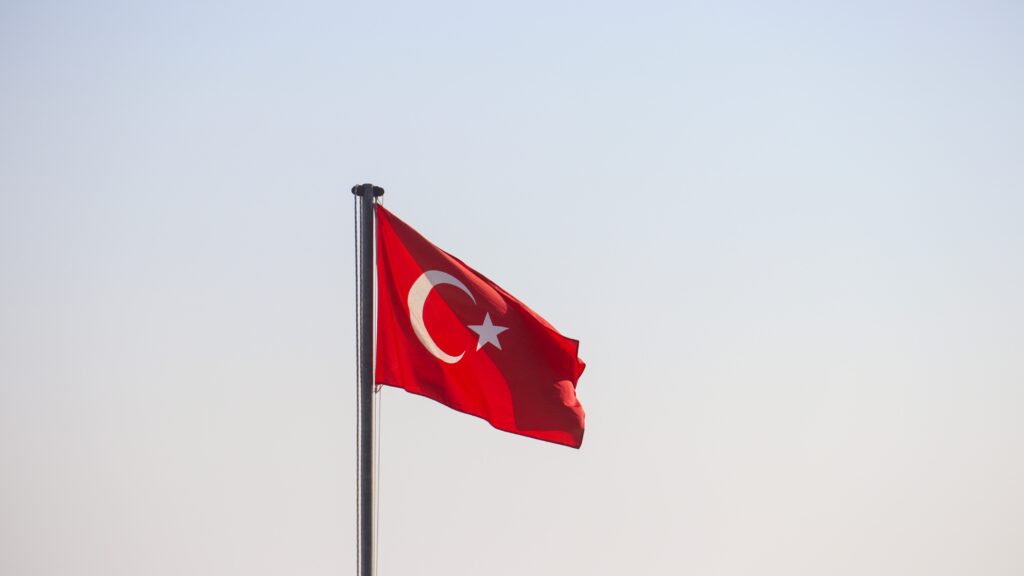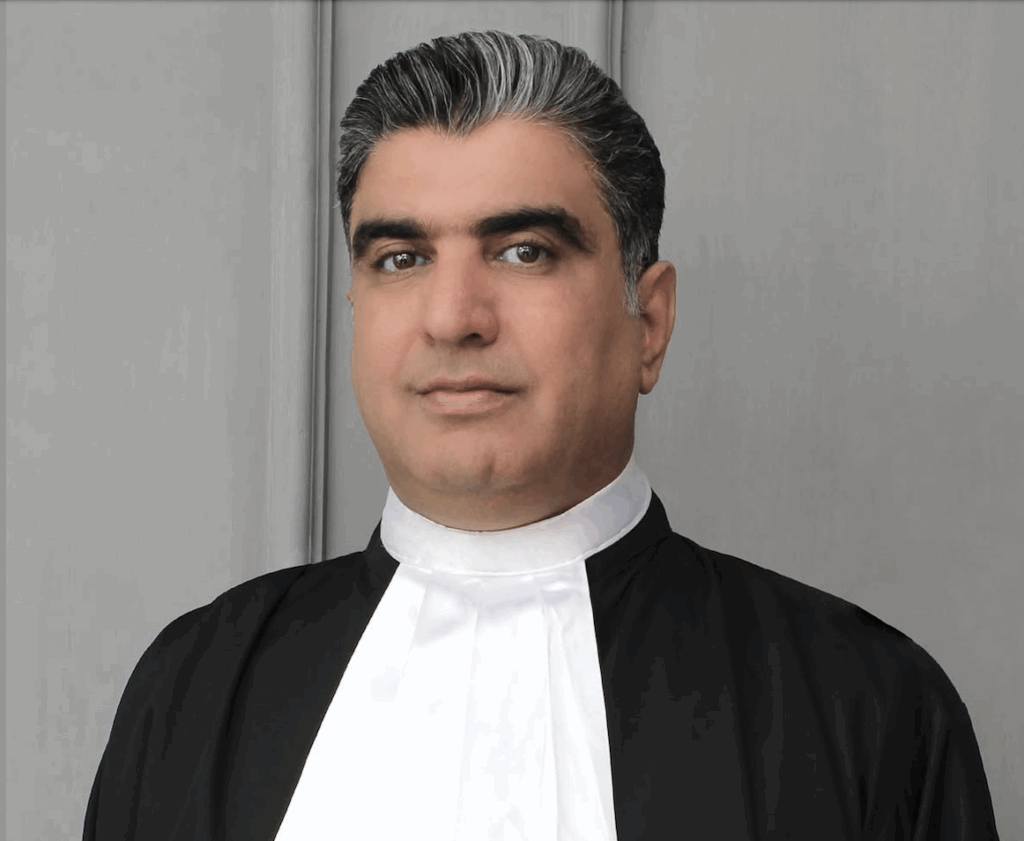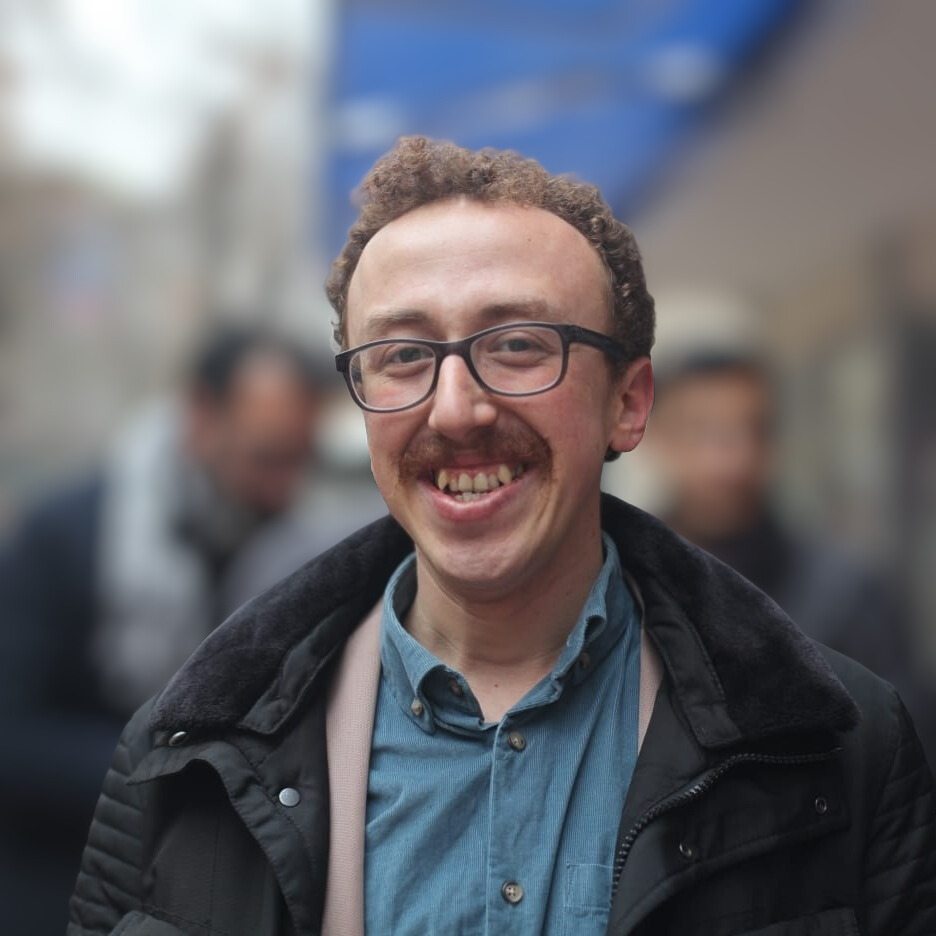Illustration: Joost Hölscher
Mr. Pinheiro is a Brazilian political scientist and lawyer that has been working on social environmental litigation for the past decade. He established his own law firm (Pinheiro de Azevedo, Advocacia) and works for Climate Observatory in a secretariat capacity. In this role, he helps coordinate and create a network with other NGOs to discuss the climate agenda before Brazilian society and to strengthen their litigation efforts.
Climate Observatory is a coalition of Brazilian civil society organizations that promotes strategies for the sustainable use of land, protection and restoration of biodiversity, actions for a decarbonized economy, and encourages energy consumption from renewable sources. Climate Observatory is also active in the judicial sphere, working to prevent social and environmental degradation and to urge governments to defend the climate and the environment. In 2022, Climate Observatory was involved in filing a communication to the prosecutor at the International Criminal Court in which they asked whether the mass human rights abuses that had occurred in the Amazon in the past ten years constitutes a crime against humanity.
Mr. Pinheiro is currently working on more than 10 cases before the Supreme Court in Brasilia and has had some major wins in the past. In 2021, when Mr. Pinheiro joined Climate Observatory, he became part of a larger group of civil society organizations and opposition political parties that filed a lawsuit against the Bolsonaro government for its failure to implement measures to protect the Legal Amazon and defunding the Amazon Fund in 2019. The Amazon Fund was a mechanism that raised donations for non-reimbursable investments to “prevent, monitor, and combat deforestation” and to promote preservation and sustainable use in the Brazilian Amazon. The lawsuit, filed by several political parties, had the technical support of the Climate Observatory (who acted as amicus curiae in the process), and argued that the federal government had failed to meet its constitutional duties to protect the environment in the region, which led to a lack of adequate public policies and institutional disarray. On November 3, 2022, the federal court ordered the Fund to be reactivated within 60 days. On August 16, 2023, the Supreme Court acknowledged the significant societal, cultural, and economic impacts of the issue and underlined the duty of public authorities to protect fundamental rights and fulfill constitutional obligations. A summary of the case and the rulings can be found here.
Mr. Pinheiro and his colleagues have experienced several challenges due to their social environmental litigation, making it difficult for them to fully carry out their roles as lawyers. In a report by OECD Watch, it was found that Brazil is one of the most dangerous countries for environmental and human rights activists. Mr. Pinheiro mentions that this danger is also felt by Brazilian environmental lawyers. Human rights and environmental lawyers can be subject to life threats, strategic lawsuits against public litigation (SLAPP), and financial risks.
While he has not been directly harassed, he has been warned to be cautious and knows friends and colleagues who were forced to leave Brazil due to death threats. He reported that litigating against large, powerful companies can lead to threats of physical attacks or criminal prosecution, which can deter lawyers from taking on these cases. Another challenge he and his colleagues face is difficulty in accessing information. Mr. Pinheiro mentioned that while there is access to information laws, transparency remains an issue. He believes these laws are ineffective because public agencies either do not respond adequately or overwhelm lawyers with excessive documents. Additionally, each Brazilian state and the federal government have their own systems, resulting in a lack of a unified system for accessing information.
Mr. Pinheiro also discussed issues regarding surveillance. He mentioned that in 2022, it was leaked that the Bolsonaro government had been illegally monitoring people. While he believes he is not among those being surveilled, he takes precautions nonetheless. He is careful about what he says and does, who he talks to, and conducts background research wherever he goes.
Mr. Pinheiro worries about his safety and emphasizes the importance of meeting the material needs of environmental lawyers. For example, if they need to flee Brazil, it is crucial that they have access to a network that can help them leave the country and provide funds to start over. He considers it a privilege to be able to give an interview to Lawyers for Lawyers, as his work with major NGOs affords him greater protection. Many environmental and human rights lawyers in Brazil do not have this privilege.
Lawyers for Lawyers is concerned about the issues regarding surveillance, safety, and harassment amongst environmental lawyers in Brazil.




